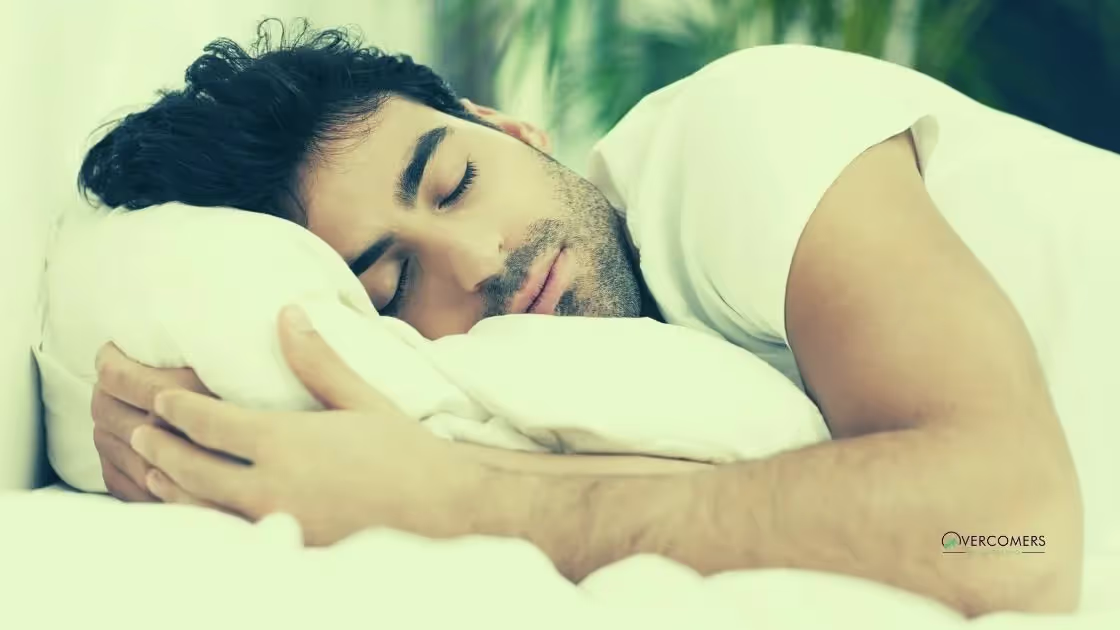It's well known that a good night's sleep is important for overall health, but it can be especially critical for people who suffer from anxiety.Anxiety can...

It's well known that a good night's sleep is important for overall health, but it can be especially critical for people who suffer from anxiety.
Anxiety can make it difficult to fall asleep and stay asleep, leading to fatigue, irritability, and difficulty concentrating.
This is bad because, in addition to robbing you of energy and causing moodiness, sleep deprivation can actually make anxiety worse.
Fortunately, there are a few simple steps that can help people with anxiety get the rest they need.
One of the most important things to do when trying to sleep better with anxiety is to set some ground rules for yourself to follow before bed.
You might decide to avoid caffeine in the evening, establish a regular bedtime routine, and avoid working or using electronic devices in bed.
Following these simple rules can help your body relax and prepare for sleep.
In addition, it's important to create a peaceful and comfortable environment in your bedroom.
This means keeping the room dark, quiet, and cool. By taking these steps, you can give yourself the best chance of getting a good night's sleep.
You should also avoid watching television or working in bed, as these activities can make it more difficult to fall asleep.

Exercise is a great way to reduce anxiety and promote better sleep. Just be sure to avoid working out too close to bedtime, as this can give you an energy boost that makes it harder to fall asleep.
It does a good job of promoting relaxation throughout the day and can help you sleep better at night.
Yoga, in particular, is a great form of exercise for people with anxiety.
There is something about resting an exhausted body that can be very calming for an anxious mind.
It makes the experience of lying in a comfortable bed more pleasant and can lead to improved sleep.
Meditation is a popular way to reduce anxiety and promote better sleep.
There are many different ways to meditate, but the goal is always to focus on the breath and clear the mind of racing thoughts.
This can be a difficult task for people with anxiety, but there are a few apps and websites that offer guided meditation specifically for people with anxiety.
The goal is to focus on the breath and clear the mind of racing thoughts.
This can be a difficult task for people with anxiety, but there are a few apps and websites that offer guided meditation specifically for people with anxiety.
Another relaxation technique that can be helpful for people with anxiety is progressive muscle relaxation.
This involves tensing and relaxing each muscle group in the body, starting with the toes and working up to the head.
This can help the mind and body to relax and is a great way to prepare for sleep.

Are there things to avoid when trying to go to sleep with anxiety?
There are a few things to avoid when trying to sleep better with anxiety.
You should avoid caffeine in the evening, establish a regular bedtime routine, and avoid working or using electronic devices in bed.
Can exercise help me sleep better with anxiety?
Exercise is a great way to reduce anxiety and promote better sleep. Just be sure to avoid working out too close to bedtime, as this can give you an energy boost that makes it harder to fall asleep.
It does a good job of promoting relaxation throughout the day and can help you sleep better at night.
I'm so tired but I can't sleep because my mind is racing, what should I do?
There are a few things you can try if you're struggling to sleep because your mind is racing.
You can try meditation, progressive muscle relaxation, or deep breathing exercises.
You should also avoid caffeine, establish a regular bedtime routine, and create a peaceful and comfortable environment in your bedroom.
How do I know if it is Insomnia?
There are a few things to consider when trying to determine whether or not you have insomnia.
If you're struggling to fall asleep or stay asleep, if you're waking up feeling exhausted, or if you're experiencing daytime fatigue, you may be suffering from insomnia.
If you think you may have insomnia, it's important to speak to a doctor to rule out any underlying medical conditions.
How Common is Sleeping with Anxiety?
Sleeping with anxiety is very common. In fact, according to the Anxiety and Depression Association of America, anxiety disorders are the most common mental illness in the United States, affecting 40 million adults.
Sleeping is a vital part of life. In fact, we spend about one-third of our lives asleep.
Given its importance, it's no wonder that a lack of sleep can have such a profound impact on our mental and physical health.
If you're struggling to get enough sleep, don't hesitate to seek professional help.
A therapist can help you identify the root cause of your anxiety. They are well equipped and trained to provide you with the tools and resources you need to better manage your anxiety and get the sleep you need.
The information presented in this post should be used for informational purposes only. This content here should not be used as a substitute for official medical advice from a licensed professional.
Anxiety can make it difficult to fall asleep with anxiety and stay asleep.
However, there are things you can do to improve your sleep.
You should avoid caffeine in the evening, establish a regular bedtime routine, and avoid working or using electronic devices in bed.
In addition, exercise is a great way to reduce anxiety and promote better sleep.
Finally, if you're struggling to get enough sleep, don't hesitate to seek professional help.